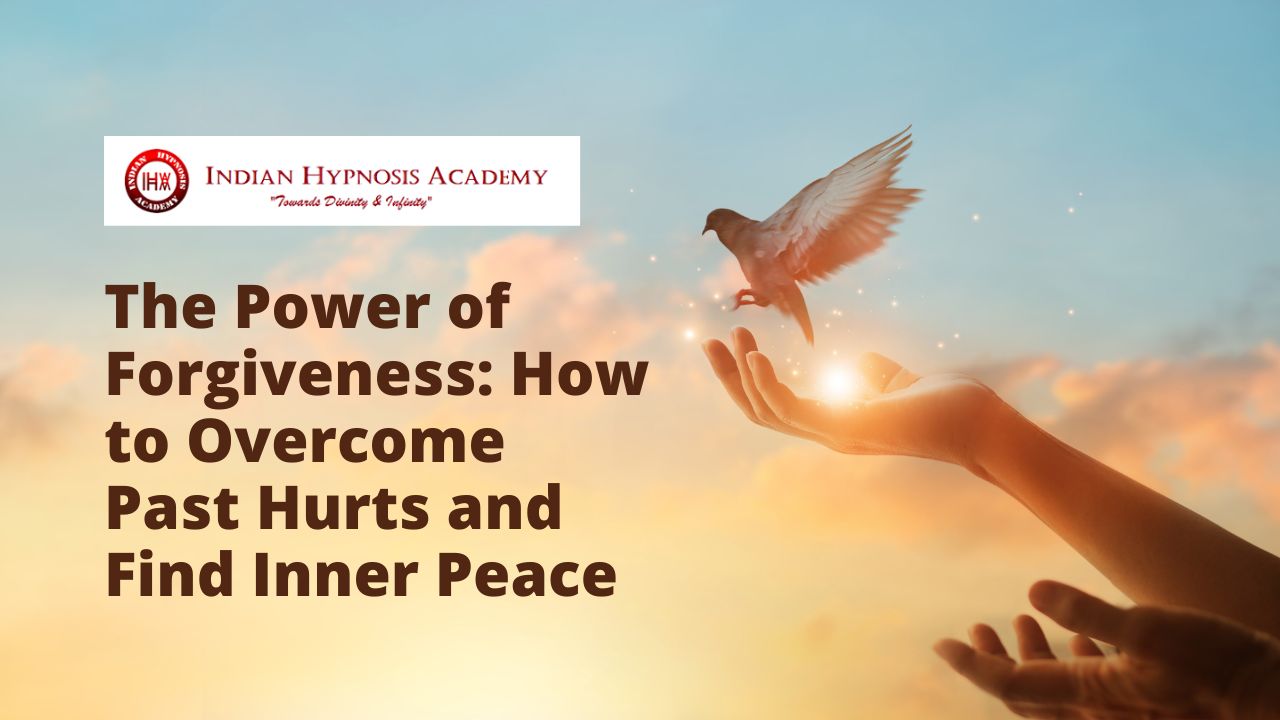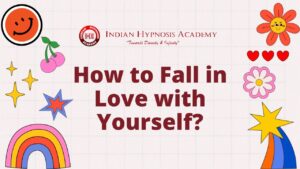Introduction to the concept of forgiveness
Forgiveness is a powerful tool that has the ability to transform our lives and set us free from the shackles of past hurts. Whether it’s forgiving ourselves for our mistakes, letting go of resentment towards others, or seeking forgiveness from those we have wronged, the act of forgiveness holds immense power in bringing inner peace and healing. In this blog post, we will explore the concept of forgiveness and its profound benefits for our mental and emotional well-being. Get ready to embark on a journey of self-discovery as we uncover how you can overcome past hurts through the transformative power of forgiveness!
The benefits of forgiveness for mental and emotional well-being
When we hold onto past hurts and grudges, it weighs us down mentally and emotionally. The act of forgiveness has incredible benefits for our overall well-being.
Forgiveness frees us from the burden of anger and resentment that can consume our thoughts. When we let go of these negative emotions, we create space for positivity and peace in our minds.
Forgiving others allows us to break free from the cycle of victimhood. Instead of carrying around feelings of being wronged or betrayed, forgiveness empowers us to take control of our own happiness.
Furthermore, practicing forgiveness promotes better relationships with others. By letting go of past grievances, we open ourselves up to deeper connections rooted in understanding and empathy.
Not only does forgiveness benefit our mental health, but it also positively impacts our physical well-being. Research has shown that holding onto anger and resentment can lead to increased stress levels which can manifest as various health issues such as heart disease or weakened immune system.
Embracing the power of forgiveness is a transformative journey towards inner peace and emotional well-being. Letting go is not always easy but the rewards are truly worth it – a lighter heart, improved relationships with others,and an overall sense of contentment within oneself.
Understanding the different types of forgiveness: self-forgiveness, forgiving others, and seeking forgiveness from others
Understanding the different types of forgiveness is essential in our journey towards healing and inner peace. Self-forgiveness involves letting go of guilt and shame for past mistakes or shortcomings. It requires acknowledging our imperfections and embracing self-compassion. By forgiving ourselves, we can free ourselves from the burden of self-condemnation.
Forgiving others is equally important. Holding onto grudges or resentment only weighs us down emotionally. Forgiveness allows us to release negative emotions and find liberation from pain inflicted by others. It does not mean forgetting or condoning their actions but rather choosing to let go for our own well-being.
Seeking forgiveness from others takes vulnerability and humility. Recognizing the hurt we have caused someone else and genuinely apologizing paves the way for reconciliation and rebuilding relationships.
Each type of forgiveness plays a unique role in our emotional growth and overall well-being. By understanding these distinctions, we can navigate through challenging situations with greater compassion and empathy for ourselves and others around us.
Remember that forgiveness is a journey that requires patience, practice, and understanding. It may not happen overnight but taking small steps towards forgiveness can lead to profound healing in our lives.
How to let go of anger and resentment through forgiveness
Letting go of anger and resentment can be a challenging task, but through the power of forgiveness, it is possible to find inner peace. Holding onto these negative emotions only harms ourselves in the long run. So how can we let go and move forward?
It’s important to acknowledge our feelings and validate them. It’s okay to feel angry or hurt; these emotions are natural. However, dwelling on them for too long can become toxic.
One helpful technique is reframing our perspective. Instead of focusing on the wrongs done to us, we can try to understand that everyone makes mistakes and has their own struggles. This doesn’t excuse their actions, but it helps us empathize with them.
Another effective approach is practicing empathy towards ourselves as well as others involved in the situation. Recognizing that we are all imperfect beings allows us to cultivate compassion instead of holding grudges.
Taking time for self-reflection is also crucial in this process. We need to ask ourselves if holding onto anger serves any purpose other than keeping us stuck in negativity.
Forgiveness doesn’t mean forgetting or condoning what happened; rather, it means choosing not to let those past hurts define our present and future happiness.
By letting go of anger and resentment through forgiveness, we free ourselves from emotional burdens and create space for healing and growth within our hearts.
Techniques for practicing forgiveness in daily life
Practicing forgiveness in our daily lives can be a transformative and empowering experience. It allows us to release the burdens of past hurts, freeing ourselves from the heavy weight of anger and resentment. But how exactly do we cultivate forgiveness on a day-to-day basis? Here are some techniques that can help:
1. Reflect and acknowledge: Take time each day to reflect on any unresolved feelings or grudges you may be holding onto. Acknowledge these emotions without judgment or blame.
2. Shift your perspective: Try to see things from the other person’s point of view. This doesn’t mean condoning their actions, but rather seeking understanding and empathy.
3. Practice self-compassion: Remember that forgiving yourself is just as important as forgiving others. Treat yourself with kindness and compassion during this process.
4. Let go of expectations: Release any expectations you have about how others should behave or what they owe you. Accept that everyone makes mistakes, including yourself.
5. Set boundaries: Forgiveness doesn’t mean allowing someone to continue hurting you or crossing your boundaries repeatedly. It’s essential to establish healthy boundaries for self-care.
6. Self-reflection through journaling: Write down your thoughts, feelings, and insights about forgiveness regularly in a journal dedicated solely to this purpose.
7. Practice mindfulness meditation: Engage in regular mindfulness practice to develop awareness around your emotions, thoughts, and triggers related to forgiveness
Remember that practicing forgiveness is an ongoing journey; it takes time and effort but offers immense rewards for our mental well-being.
The role of empathy and understanding in the process of forgiveness
The role of empathy and understanding in the process of forgiveness is crucial. When we can put ourselves in someone else’s shoes, we begin to see things from their perspective. This helps us develop a deeper sense of compassion and allows us to let go of our anger and resentment.
Empathy enables us to acknowledge the pain that others may have caused us, while also recognizing that they too are capable of feeling hurt. It reminds us that everyone makes mistakes and has their own struggles. By understanding this, we can start to release any negative emotions tied to past hurts.
In practicing forgiveness, empathy acts as a bridge between ourselves and those who have wronged us. It opens up channels for communication and promotes healing on both sides. Through empathy, we can create an atmosphere where understanding flourishes, allowing for meaningful dialogue and potential reconciliation.
However, it’s important to note that empathy does not mean condoning or excusing harmful behavior. Rather, it serves as a catalyst for personal growth and transformation by acknowledging the humanity within each individual involved in the forgiveness process.
By cultivating empathy towards ourselves as well, we recognize our own flaws and imperfections. We understand that self-forgiveness is just as essential as forgiving others because holding onto guilt or shame only hinders our journey towards inner peace.
Embracing empathy paves the way for true forgiveness – one rooted in compassion rather than bitterness or revenge. It empowers individuals to break free from the chains of past hurts and find solace within themselves.
The power of self-compassion in forgiving oneself
The power of self-compassion is a profound tool that can aid us in the process of forgiving ourselves. When we make mistakes or harbor regrets, it’s easy to fall into a cycle of self-blame and harsh judgment. However, by cultivating self-compassion, we can break free from this destructive pattern and find healing.
Self-compassion involves treating ourselves with kindness, understanding, and acceptance. It means acknowledging our human imperfections without berating ourselves for them. Instead of dwelling on past mistakes, we can learn to offer ourselves the same compassion and forgiveness that we would extend to a loved one.
Practicing self-compassion requires patience and gentleness towards oneself. It starts with recognizing our emotions without judgment and allowing space for healing. We can remind ourselves that everyone makes mistakes; it’s part of being human.
In moments when we struggle to forgive ourselves, it can be helpful to reframe our perspective. Rather than viewing our actions as unforgivable failures, we can choose to see them as opportunities for growth and learning.
By practicing self-compassion in forgiving oneself, not only do we release the burden of guilt but also open the door to personal transformation. Self-forgiveness allows us to move forward with greater clarity and inner peace.
Remembering that forgiveness is an ongoing process – one that may require time – helps build resilience along the way. Through cultivating self-compassion daily and nurturing a kinder relationship with ourselves, true forgiveness becomes attainable.
Real-life examples and success
Throughout history, there have been countless stories of individuals who have found the power to overcome past hurts through forgiveness. These real-life examples serve as a testament to the transformative effects of embracing forgiveness in our lives.
One such story is that of Nelson Mandela, who spent 27 years in prison during apartheid in South Africa. Despite enduring unimaginable suffering and injustice, Mandela chose to forgive his captors upon his release. This act of forgiveness not only helped heal his own heart but also played a crucial role in uniting a divided nation.
Another inspiring example is the story of Eva Kor, a Holocaust survivor who forgave the Nazi doctor Josef Mengele for conducting cruel experiments on her and her twin sister. Through forgiveness, she was able to find inner peace and even went on to establish an organization dedicated to promoting healing and understanding.
These extraordinary individuals show us that we all have the capacity for forgiveness within us. By letting go of anger, resentment, and pain from past hurts, we can pave the way for personal growth, emotional well-being, and harmonious relationships.
So take a moment today to reflect on your own journey towards forgiveness. Remember that forgiving oneself or others does not mean condoning their actions but rather freeing yourself from the burden they hold over you.
In conclusion (without explicitly stating it), by practicing self-forgiveness and extending compassion towards others through empathy and understanding, we can break free from the chains of our past hurts and find true inner peace. The power lies within each one of us – let’s embrace it wholeheartedly.




